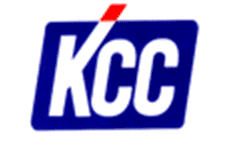E-Commerce Platform Market trends
E-Commerce Platform Market outlook appears positive due to shifting preferences toward online retail channels
The
rise of e-commerce has significantly transformed the retail sector, especially
with the introduction of online platforms for purchasing goods. Not limited to
the end-users, even retailers are increasingly buying goods online from the
wholesalers because of the convenience and cost-effectiveness provided by the
online platforms. With this aspect, retailers are seen embracing e-commerce
platforms to enhance their customers' shopping experiences, which has also
increased their business visibility allowing them to reach remote customers
regardless of the regional barriers.
Besides,
product integration provides a seamless consumer experience by diminishing the
barrier between online and offline retail channels. Apart from enhancing the
overall consumer experience, these platforms include a host of analytical
features for the retailers that allows tracing the availability of goods and
revenue generation on the go. Thereby meeting all the business requirements
through a single software.
The
integration of advanced features such as data analytics is expected to boost e-commerce
platform market trends
during the forecast period. Today, data is not considered a by-product of
business, but a key asset that provides insight into customer’s behavior
concerning purchasing patterns, frequency, and choice. The rising penetration
of big data analytics is causing a paradigm shift in the e-commerce industry
because data is now considered as a key aspect to forecast sales. And to
simplify the complexities associated with big data analytics, the e-commerce
platform developers have started integrating AI solutions into them.
These
data-driven smart tools have helped the retailers to generate higher revenues
from the resultantly improved sales. Moreover, e-commerce platforms allow
better interaction with the customers by allowing them to rate products and
services that in turn provides a medium to understand consumer requirements
which can be cashed into profits, further driving the e-commerce platform
market demand.
Request a sample report from https://www.reporthive.com/request_sample/2017788
Considering
the e-commerce platform market segmentation by type, the Cloud-based deployment
model is expected to witness significant traction as compared to the
on-premises deployment. This can be attributed to the growing number of
retailers focusing on leveraging online platforms to acquire new customer
segments, fostered by technological advances and increasing competitiveness of
the retail sector.
Despite the e-commerce
platform vendors are consistently improving the usability of their product
offerings by integrating several new features consistently, the huge data
volumes and increasing bandwidth demands pose major challenges to the
e-commerce platform market growth during the forecast period. This is because
the increased scalability provided by the e-commerce platforms highly depends
on the network infrastructure and its ability to handle traffic loads. However,
the e-commerce platform vendors are focusing to enhance their network infrastructure to overcome this major challenge, eventually leading
toward the expansion of e-commerce platform market size in the upcoming years.
Author Name : Report Hive Research

.png)

.png)



















